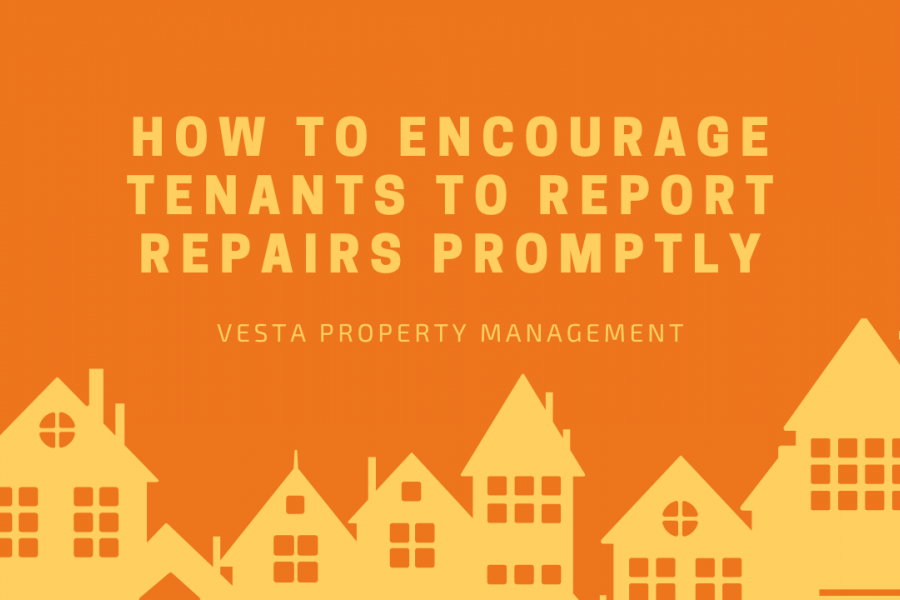
Key Takeaways
- Clear Communication and Simple Systems Matter – Landlords should set expectations from the start, clearly outlining how tenants can report repairs and making the process easy through dedicated emails, online forms, or property management software.
- Trust and Responsiveness Build Better Reporting – Promptly acknowledging repair requests, providing honest timelines, and following up after repairs help foster trust. When tenants see that issues are taken seriously, they are more likely to report problems quickly in the future.
- Education and Incentives Encourage Tenant Engagement – Teaching tenants which issues require attention and offering small incentives, like thank-you notes or gift cards, can motivate renters to report repairs early, preventing small problems from turning into costly damage.
The worst surprise you can ever experience as a landlord is performing a move out inspection only to discover that your rental property has serious damages that you never knew existed. It could come in the form of a leaky roof, moldy ceiling, non-functional HVAC system, faulty electrical appliances, etc. This can be frustrating and expensive.
Prompt reports of issues that require repairs will help you resolve problems early, when it is easier and less expensive. Allowing them to continue without fixing those issues causes extensive damage that can render the property uninhabitable, costly to remedy, and reduce the value.
Learn How We Can Help You Maximize Your Home’s Potential.
How can property managers or landlords prevent such scenarios and create a relationship or system where renters will promptly report repairs? In this article, Vesta Property Management will simplify how to go about it.
Why Do Tenants Fail to Report Repair Issues?
Many renters fail to report repair issues when they should, and this often happens for several reasons. Some tenants view certain problems as too minor to mention. For instance, if doors or windows don’t open and close smoothly, they may assume it’s just a small alignment issue, not realizing it could signal a larger structural concern.
Others hesitate to report problems because they don’t want to be perceived as bothersome or high-maintenance, especially if they’ve had negative experiences with landlords in the past.

Fear also plays a role. Some tenants worry that frequent repair requests could trigger rent increases or even put their tenancy at risk. In other cases, renters may not know how to properly report repairs or may find the process so inconvenient that they choose to ignore the issue altogether.
Finally, confusion about responsibilities can prevent tenants from speaking up. If they believe the repair falls under their own obligations rather than the landlord’s, they may avoid reporting it to save themselves from additional costs, even if the problem should be addressed by property management.
How to Create Systems Where Tenants Promptly Report Repairs
1. Set the Tone
If you want your tenants to promptly report repair issues, you will need to set the tone from day one. Repeatedly, warmly, and clearly inform your tenants that you want them to report all repair issues to you early so that you can fix them on time. Let them know that it will be less expensive to handle the situation when reported early.
It is advisable to also include this in your lease agreement. Clearly explain when and how you want the repairs report to be done. In the move-in checklist, include repair reports instructions too. It shouldn’t end at receiving these reports, make sure that repairs are handled immediately.
2. Make the Process Simple
Your tenants should not have to search through your websites or their email threads to figure out how they can report repair issues on your rental property.

Instead, make the process easy by providing the following:
- A dedicated email for reporting repairs
- Property management software that has repair ticket system
- A phone number where they can send an SMS
- An online request form for maintenance
Include this information in the lease agreement or post them on the notice board in common areas. When renters report repairs, acknowledge that their reports have been received and set a general repair timeline for it.
Learn How We Help Real Estate Investors Succeed!
3. Build Trust with Professionalism
If tenants report repair issues to you but you fail to handle them, it will diminish the trust they had in you. As a result, they will fail to report subsequent repair issues. However, if you fix the issue within the specified timeline, it will build more trust and foster a positive landlord-tenant relationship.
You can build trust and professionalism by:
- Promptly acknowledging repair requests
- Setting clear and honest timelines about the repair
- Informing tenants about delays and the causes of such delays
- Checking in after completing the repair to confirm that everything has been fixed up to their satisfaction
4. Offer Incentives
Even when most landlords think that they do not have to reward tenants who report repairs, we believe giving them incentives for reporting is a great strategy. Tenants who report repair issues are quality renters and should be treated as such. Here are a few ideas you may try:
- A thank you note or message to them for reporting it early
- A holiday card or gift card to tenants who promptly and repeatedly communicate repair issues
- A quarterly check-in: inviting renters to share their issues and a raffle draw for tenants that respond

The list is not exhaustive, you can execute ideas that will resonate with your tenants as a way to encourage them to report issues with their units.
5. Educate Your Tenants
It is an established fact that what some tenants consider as a minor issue may actually be a major damage waiting to happen. For that reason, it is important to educate them about things that are early warning signs and why it matters. Such signs will include:
- Musty or gas-like smells
- Drop in water pressure
- Running toilets
- Windows and doors that don't close or open properly
- Dripping faucets
- Electrical issues
- Stains on walls and ceilings
- Pest sightings
- Heating or cooling issues
It’s also important to make sure your tenants understand their responsibilities. Set clear expectations from day one by including this information in your lease agreement.
Bottom Line
Communication is your best tool as a landlord. Build systems that will promote clarity, trust, and responsiveness. Your tenants will act quickly and report repair issues when they feel safe, confident about how you handle repair issues, and feel appreciated for speaking up.
If you’d like to learn more about managing your tenants, contact Vesta Property Management today!